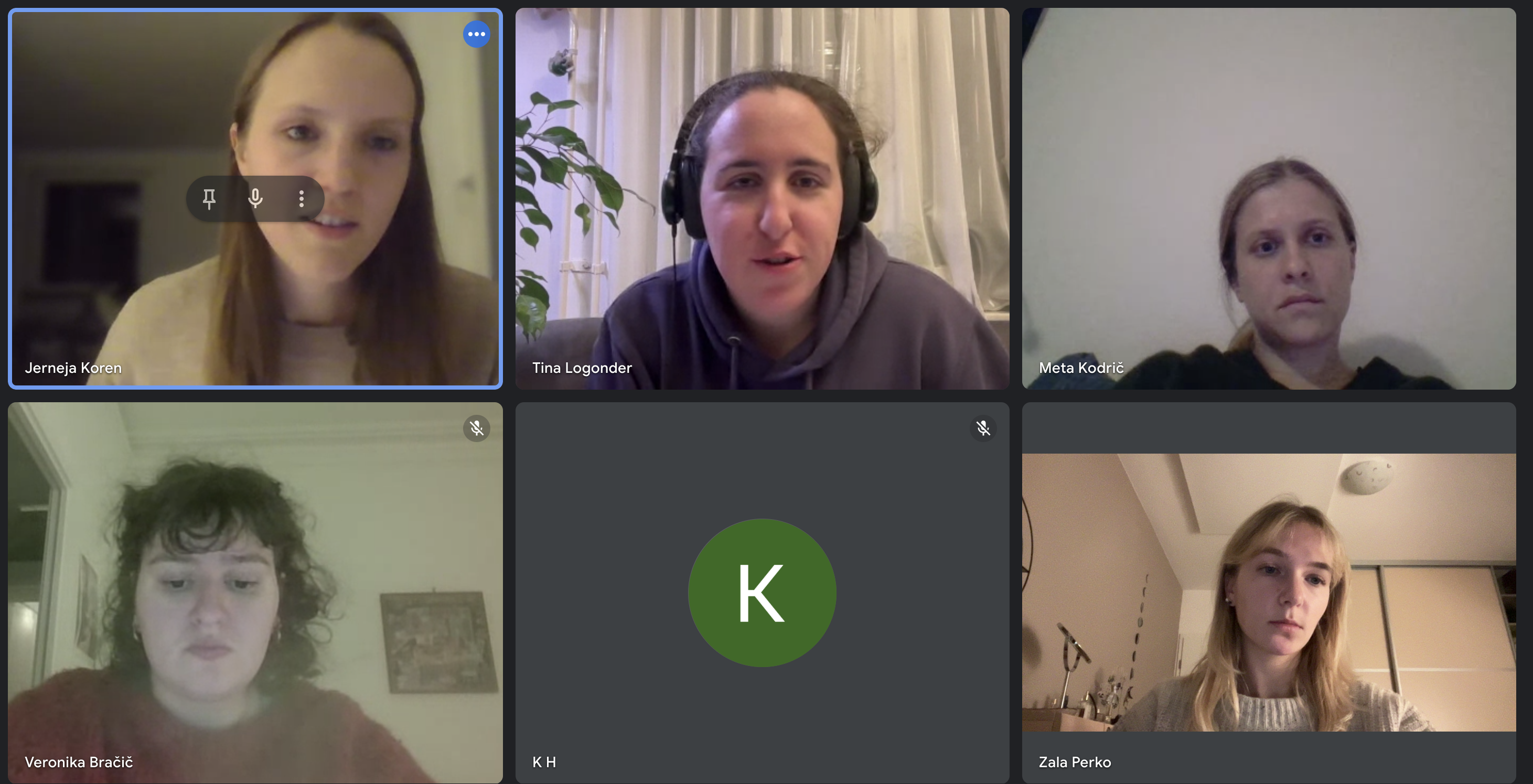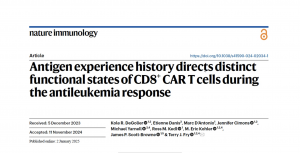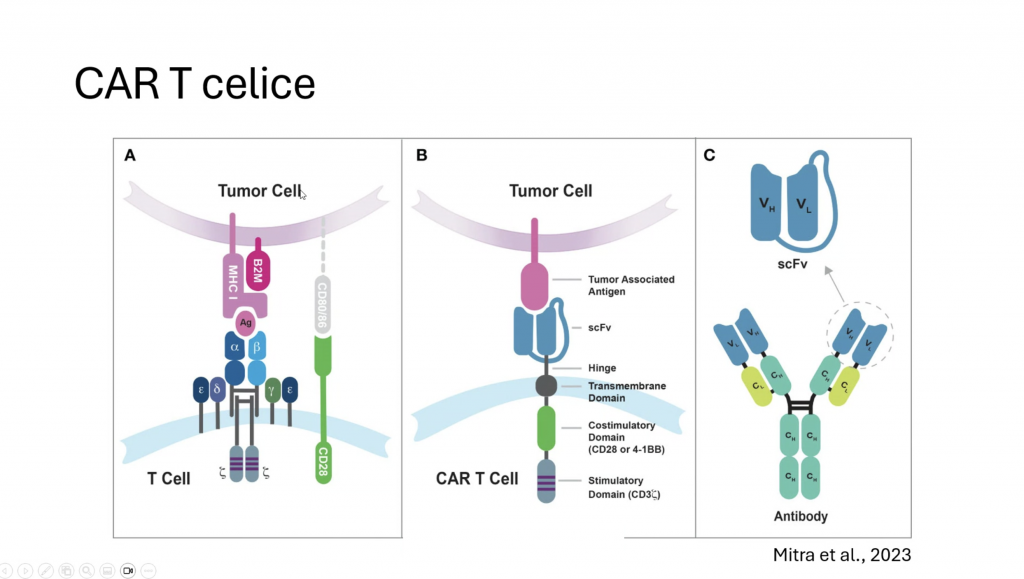
BioX – Which cells are more effective in fighting cancer: memory or naive?
At the first ASEF BioX reading circle of the year, which took place on Wednesday, January 15, 2025, Jerneja Koren, ASEF Fellow of the generation of 2024, presented an immunology-themed article: “Antigen experience history directs distinct functional states of CD8+ CAR T cells during the antileukemia response”.

CAR T cell therapy is a promising type of immunotherapy in which genetically modified T lymphocytes of the patient express a chimeric antigen receptor, which gives them an improved ability to recognize cancer cells and activate an immune response. Despite the promising technology, the success of CAR T cells is still limited due to frequent side effects and inconsistent efficacy. The research conducted by DeGolier and colleagues focused on the impact that past activation, or exposure to antigens (molecules that trigger an immune response), has on the efficacy of CAR T cells. Typically, T lymphocytes obtained from the patient’s peripheral blood without distinction between previously activated (memory) and non-activated (naive) T cells.

They found that memory cells are more effective at killing cancer cells, but divide more slowly than naive cells. After the presentation, an interesting debate broke out among the fellows regarding different forms of leukemia, the transcription factor RUNX, which is important for the effectiveness of CAR T cells, and Jerneja’s research work as part of her doctoral studies.

